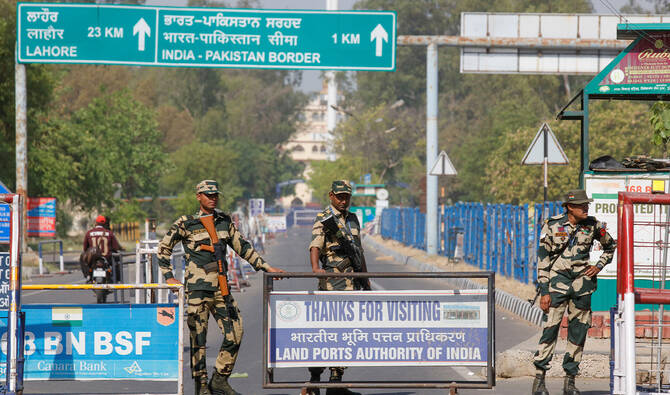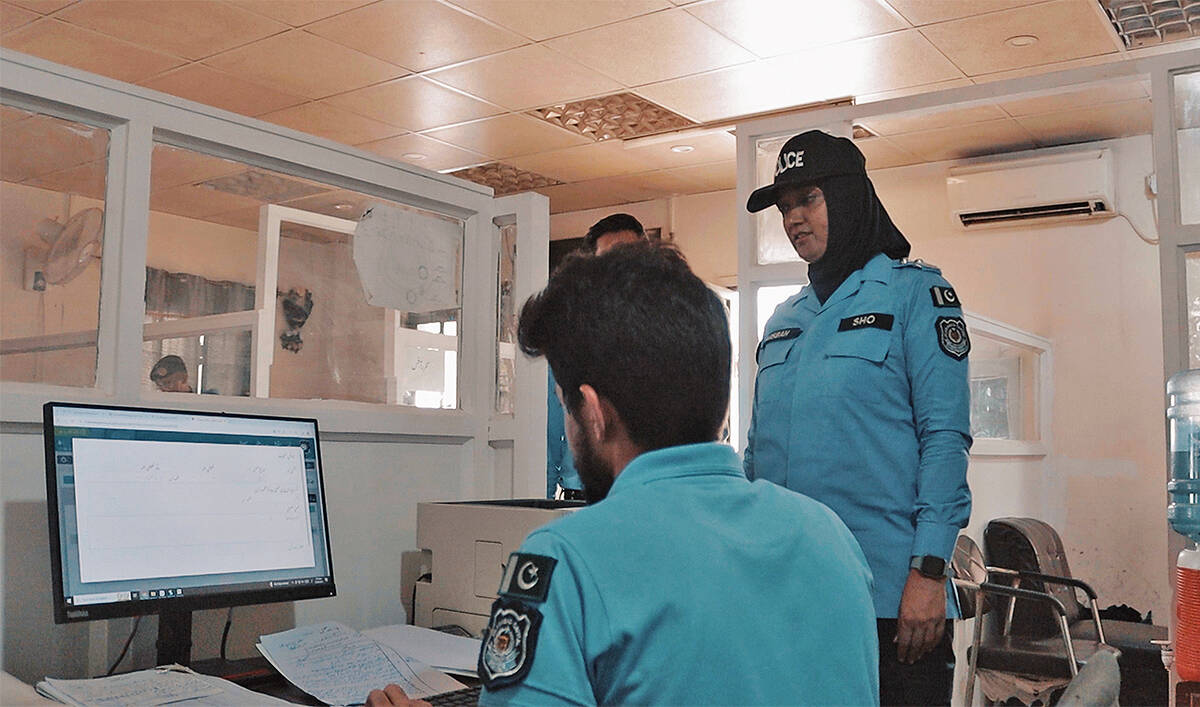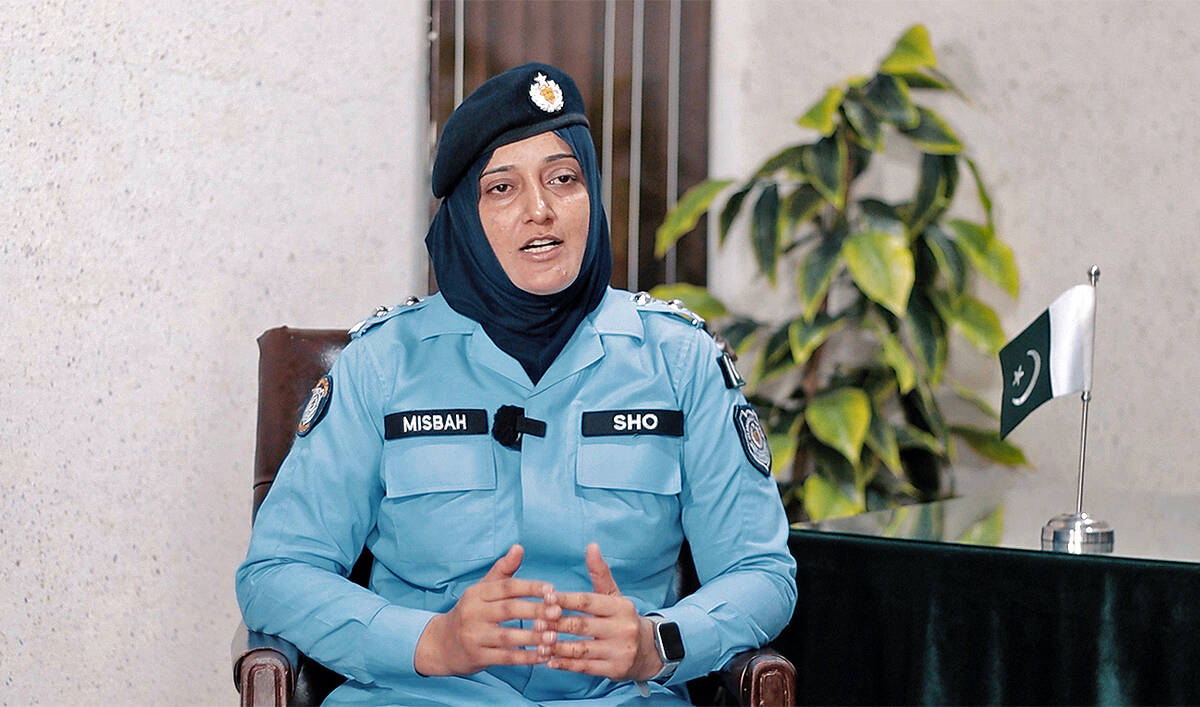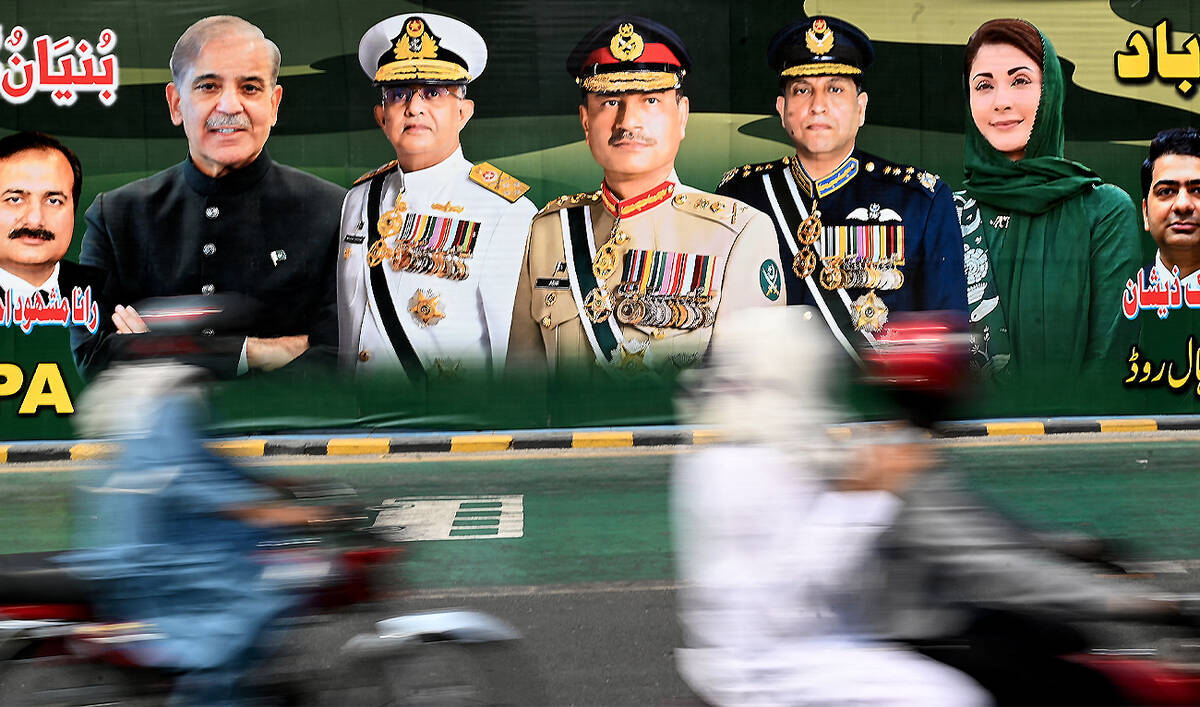ISLAMABAD: India and Pakistan are exchanging fire over their de-facto border since the Kashmir attack, but in New Delhi and Islamabad political foes are coming together and looking to score points.
On April 22, gunmen killed 26 people in the Indian-administered part of Kashmir, the disputed Himalayan region that has long been a dangerous thorn in relations between the nuclear-armed neighbors.
India accuses Pakistan of backing the perpetrators of the worst attack on civilians in years in Kashmir, an accusation rejected by Islamabad.
In addition to shooting over the Line of Control frontier in Kashmir, the two nations have exchanged diplomatic barbs, expelled citizens and ordered the border shut.
But while the world holds its breath over a possible escalation, analysts said that domestically both sides could use the crisis to generate political gains.
“New Delhi could use it to bolster its image as strong and confident and tough on terror,” said political scientist Michael Kugelman.
“Islamabad could use it to try to rally support for a civilian and military leadership that isn’t terribly popular at home,” Kugelman told AFP.
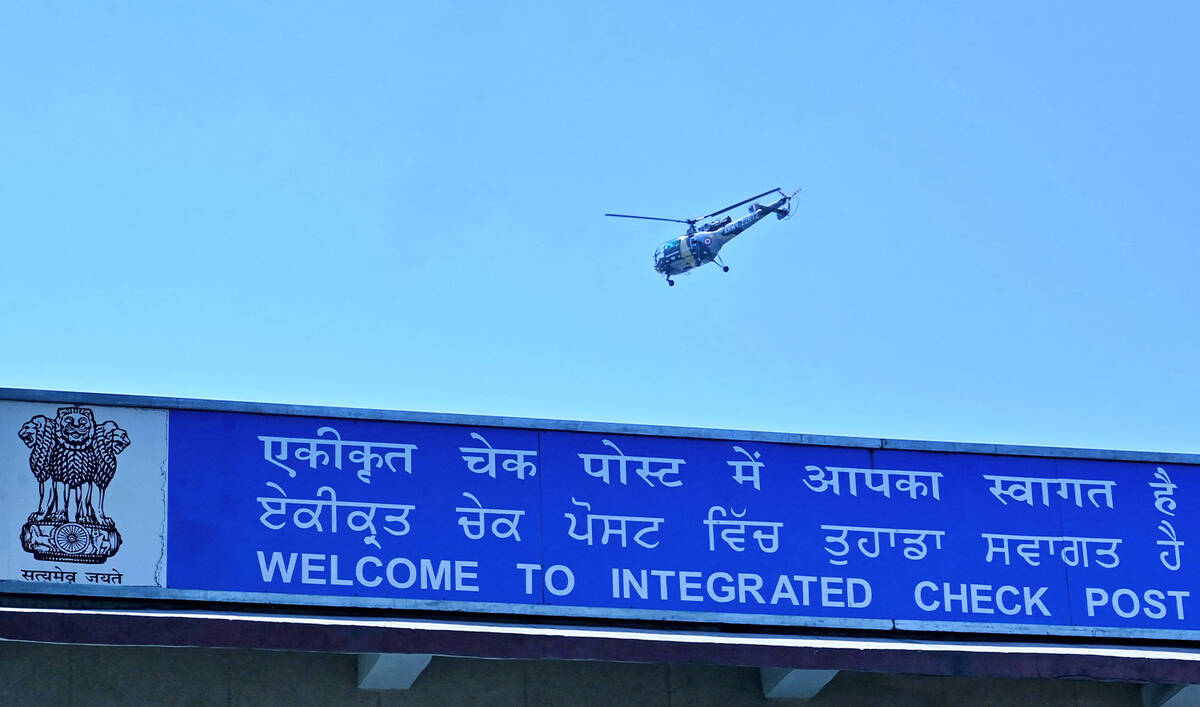
An Indian army helicopter flies near the India-Pakistan Wagah border post, about 35 km from Amritsar on April 28, 2025. (AFP)
Pakistani opposition parties have in recent times become more openly critical of the military, which has long been heavily involved in politics and the economy.
But now the fallout of the Kashmir attack has “entirely diverted attention with one common enemy,” Pakistani political scientist Ayesha Siddiqa told AFP.
“When there is a fear of war, people show greater support for the army,” she said.
When the Senate voted on an anti-India resolution last week, jailed former prime minister Imran Khan’s Pakistan Tehreek-e-Insaf (PTI) party voted in favor, ensuring it passed unanimously.
Siddiqa said the party had no other choice or it would have been deemed unpatriotic.
“It is not about being with this installed government or the army, it is about standing against the enemy,” PTI’s spokesman Sheikh Waqas Akram said.
Information Minister Ataullah Tarar echoed the message: “We don’t speak as party members, we speak as Pakistanis.”
Likewise in India, Rahul Gandhi of the Congress party, usually a harsh critic of Modi, made a statement saying that the opposition was united in condemning the attack.
“Whatever steps the government wishes to take, we will fully support them,” Gandhi said.
“The intent behind this attack is to divide society and pit brother against brother,” he added.
“At such a time, it is extremely essential that every Indian remains united and stands together — so that we can foil this conspiracy of the terrorists.”
The youth wing of the Congress party has held rallies, waving the Indian flag and offering their support to Modi.
“I pray to God for the peace of those who lost their lives in this attack,” said Ravi Kumar, a member of the Indian Youth Congress, during a rally on Friday.
He called for “strong and decisive action. The people of the country and the opposition are standing firmly with you.”
Even members of India’s Muslim minority — portrayed as a Pakistani “fifth column” by some in Modi’s Hindu nationalist party — have got behind the government and taken aim at Pakistan.
“Remember, if you go into another country and kill innocent people, no country will remain silent,” said Asaduddin Owaisi, president of the All India Majlis-e-Ittehadul Muslimeen party (AIMIM).
On the Pakistani side, government officials and official media have presented the Kashmir attack as “fake and orchestrated by India.”
This message has been widely shared on social media in Pakistan, where disinformation is rife, has gone down well on the street.
“India is holding us responsible after having executed its own citizens,” said Matloob Inkalabi, a resident of Pakistani Kashmir.
In Islamabad, Waqas Sheikh, a 56-year-old trader, agreed.
“The attack was planned by the Indians, Pakistan has nothing to do with it,” he says, assuring that he “supports the army if India continues its provocations.”
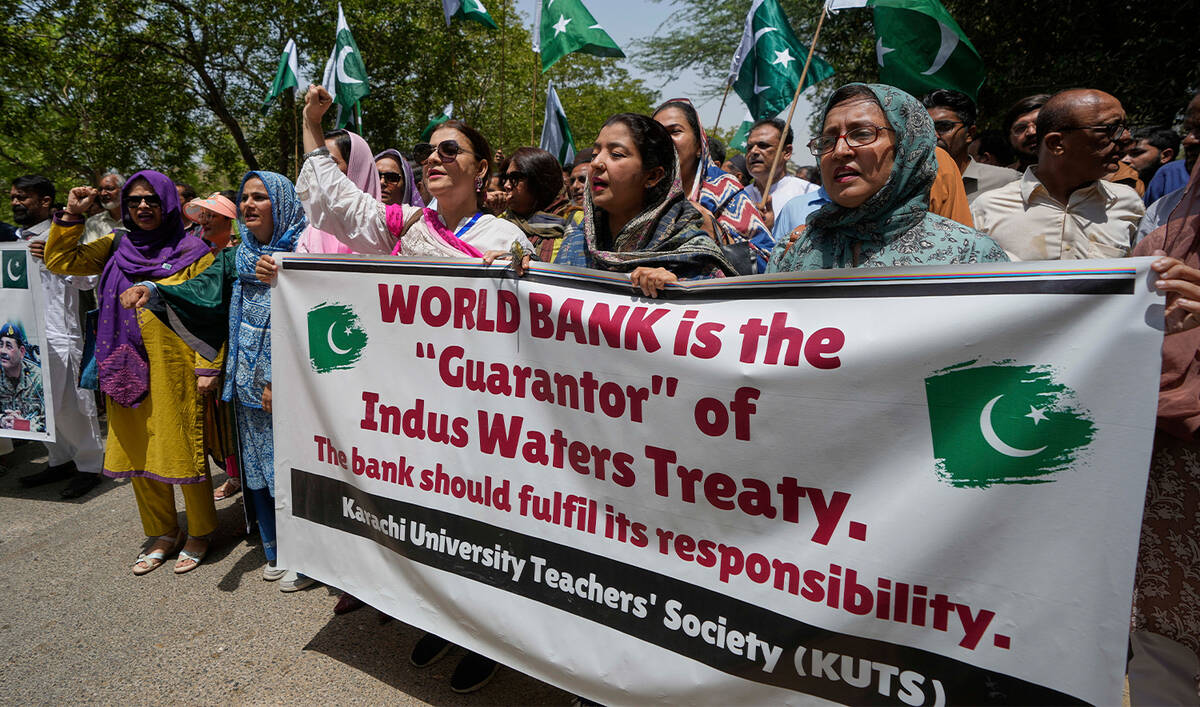
Members of the Karachi University Teachers Society hold a demonstration against the suspension of water-sharing treaty by India with Pakistan, in Karachi, Pakistan, on April 28, 2025. (AP)
Since the Kashmir attack, Indian police have issued wanted posters for three men — two Pakistanis and an Indian — who they say are members of the Pakistan-based Lashkar-e-Taiba group, a UN-designated terrorist organization.
Modi is “under pressure to deliver,” said Praveen Donthi from International Crisis Group (ICG).
“The public is used to a certain hostile rhetoric when it comes to Pakistan, and they are now begging for blood, they are asking for a military retaliation,” Donthi said.


